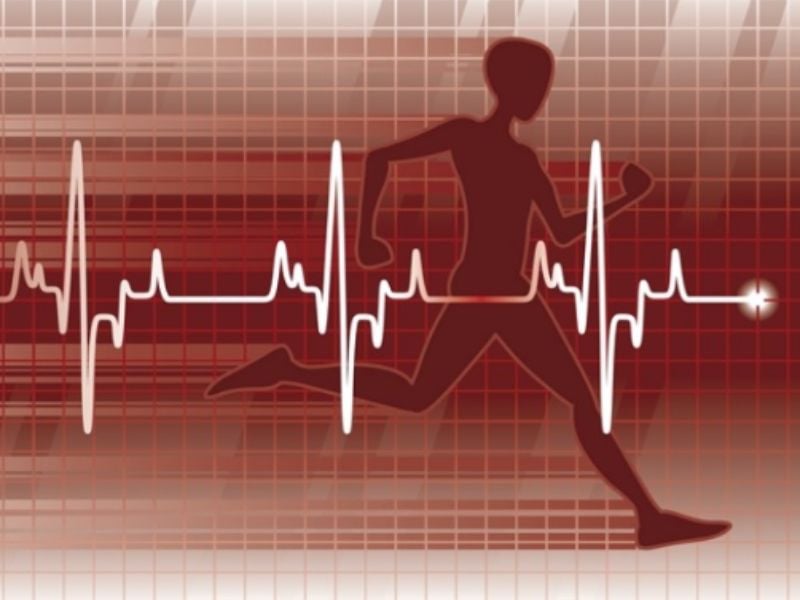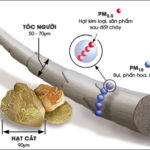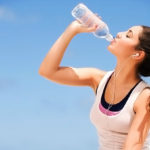According to Dr. Hoang Xuan, a Cardiovascular and Thoracic Surgeon in Taiwan, sudden death during exercise is more common than most people think. He cites a study from Taiwan that shows there are 3 sports that are prone to causing sudden death: running with 33.98%, soccer with 10.68%, and basketball with 8.64%.
Therefore, long-distance running, especially marathons or half marathons, has the highest mortality rate, despite being the most popular sport for all ages.
Since 2012, the New England Journal of Medicine has also published an analysis of deaths in full or half marathons in the United States from 2000 – 2010, which surprised many people. Note that the full marathon distance is 42.195km and the half marathon is 21.0975.
The report revealed that out of a total of 10.9 million runners, 59 people suffered sudden cardiac arrest, resulting in an overall incidence of about 1 in 200,000. Out of those cases, 42 people died, resulting in a mortality rate of 70%. The average age of these incidents was 42, 86% (51) were male, and the incidence of disease was 5.6 times higher in men than in women.
Illustrative image
Dr. Hoang Xuan also notes that this does not mean that only long-distance running can cause sudden death. You can still experience cardiovascular disorders, even sudden death, while running short distances. Especially if you train incorrectly, train in extreme weather conditions, or have underlying diseases (most commonly cardiovascular diseases).
The main causes of sudden death while running
Speaking of why sudden death occurs while running, Dr. Hoang Xuan also points out the two most common factors.
Dehydration and electrolyte imbalance:
He explains that people lose a lot of water and electrolytes when running, especially at high intensities. If not replenished in a timely manner, this can lead to a deficiency of important electrolytes such as calcium, magnesium, sodium, potassium, phosphorus, etc. On the other hand, drinking too little water can cause the blood to become concentrated with increased blood sodium and potassium depletion due to excessive sweating. In the case of high-intensity exercise, prolonged exercise can cause muscle damage and increased blood potassium.
In its proper function, sodium helps balance fluid levels in the body, stabilize blood pressure, and support nerve and muscle function. Potassium plays a role in supporting heart function, nerve function, muscle function, and transporting nutrients into cells, facilitating metabolic processes. Calcium helps the heart contract and blood vessels dilate to stabilize blood pressure, while magnesium stabilizes cell membrane electrical activity, improves nerve and muscle function, etc.
Depending on the type of electrolyte deficiency or excess, different abnormalities can occur. For example, severe blood potassium elevation can slow down and arrest the heartbeat or cause dangerous arrhythmias and sudden death. Or, magnesium deficiency in the blood can cause arrhythmias in the form of “torsades de pointes,” hypotension, and cardiac arrest, in addition to other symptoms.
Cardiovascular or brain disorders:
Dr. Hoang Xuan emphasizes that in cases of sudden death while running, especially in young people, it is often due to hidden cardiovascular and cerebrovascular diseases, especially congenital heart diseases. These may include abnormal heart structures, abnormal heart valves, abnormal heart muscles, etc.

People with coronary artery disease, when running, exert their hearts beyond their capacity, leading to arrhythmias and the recurrence of diseases, resulting in sudden death. Or, runners may have cardiovascular or cerebrovascular diseases that they are not aware of themselves. This factor is often found in young people who die.
In addition, the cardiovascular and cerebrovascular systems can also be affected by the weather, known as heat shock. For example, excessively low temperatures can lead to vasoconstriction, arrhythmias, and cardiac arrest, as well as cerebral infarction. Similarly, heat shock during a run, which is a disorder of thermoregulation caused by excessive heat, can lead to death if not promptly treated.
Or, excessive accumulation of lactic acid during running can also cause sudden death. To explain further, Dr. Hoang Xuan says that when running, the muscles may become oxygen deficient and use stored glucose in the cells to provide energy, resulting in the production of harmful by-products, namely lactic acid. The more lactic acid accumulates, the more it causes a burning sensation, muscle fatigue, muscle cramps, and muscle breakdown. Lactic acid also inhibits heart nerve function, slows down heart rate, and can lead to cardiac arrest.
Some people may also have malformations in the brain blood vessels or chronic untreated diseases. When exercising at a high intensity, prolonged exercise leads to sympathetic overdrive, causing vasospasm, increased blood pressure, cerebral vascular spasm, rupture of weak points (brain aneurysms), or exhausting the body, overloading it and causing unexpected events and sudden death.
3 warning signs of the risk of sudden death while running

Cardiovascular disease is the most common cause of sudden death while running (Illustrative image)
- Extreme thirst. Usually, it is so intense that your tongue sticks out and sticks to your lips, your throat becomes dry and hot or slightly sore.
- Heaviness in your head and a feeling of confusion. You may feel disoriented or overly excited when running, or even feel dizzy or lightheaded.
- Abnormal rapid heartbeat. When running, your heart rate increases, but you should stop immediately if you feel that your heart is beating rapidly and uncontrollably, the rhythm is clearly irregular, or you can clearly feel your heart pounding abnormally in your chest, accompanied by chest pain and possible shortness of breath.
- Regular health check-ups, especially if there is a history of congenital or familial cardiovascular and cerebrovascular diseases.
- Proper and appropriate training, considering physical condition and weather conditions.
- Proper eating and drinking habits and adequate nutrition. Do not run after eating or consume stimulants such as coffee, alcohol, etc.
- Drink enough water and drink water properly.
- Appropriate rest, especially if there are abnormalities while running, stop and seek the support of experts afterward.
Ways to Beat the Summer Heat: 10 Cool Strategies
With temperatures soaring to over 40 degrees Celsius in some parts of the northern region, this summer heatwave is causing considerable discomfort and inconvenience. The roads are practically melting in some areas. To keep yourself safe and bearable, here are some tips on how to cope during these hot days.






































